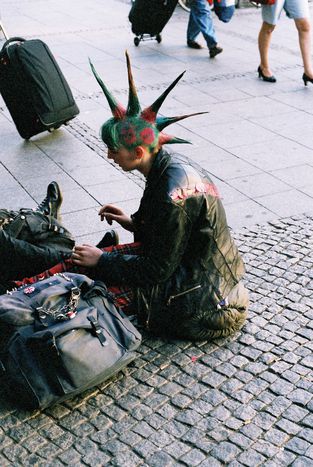
Pascal Bastien: French photographer captures Europe
Published on
Translation by:
James FrisciaPascal Bastien spent years touring Europe’s roads before the Strasbourg mediatheque proposed him an exposition as part of their 'Translating Europe' event
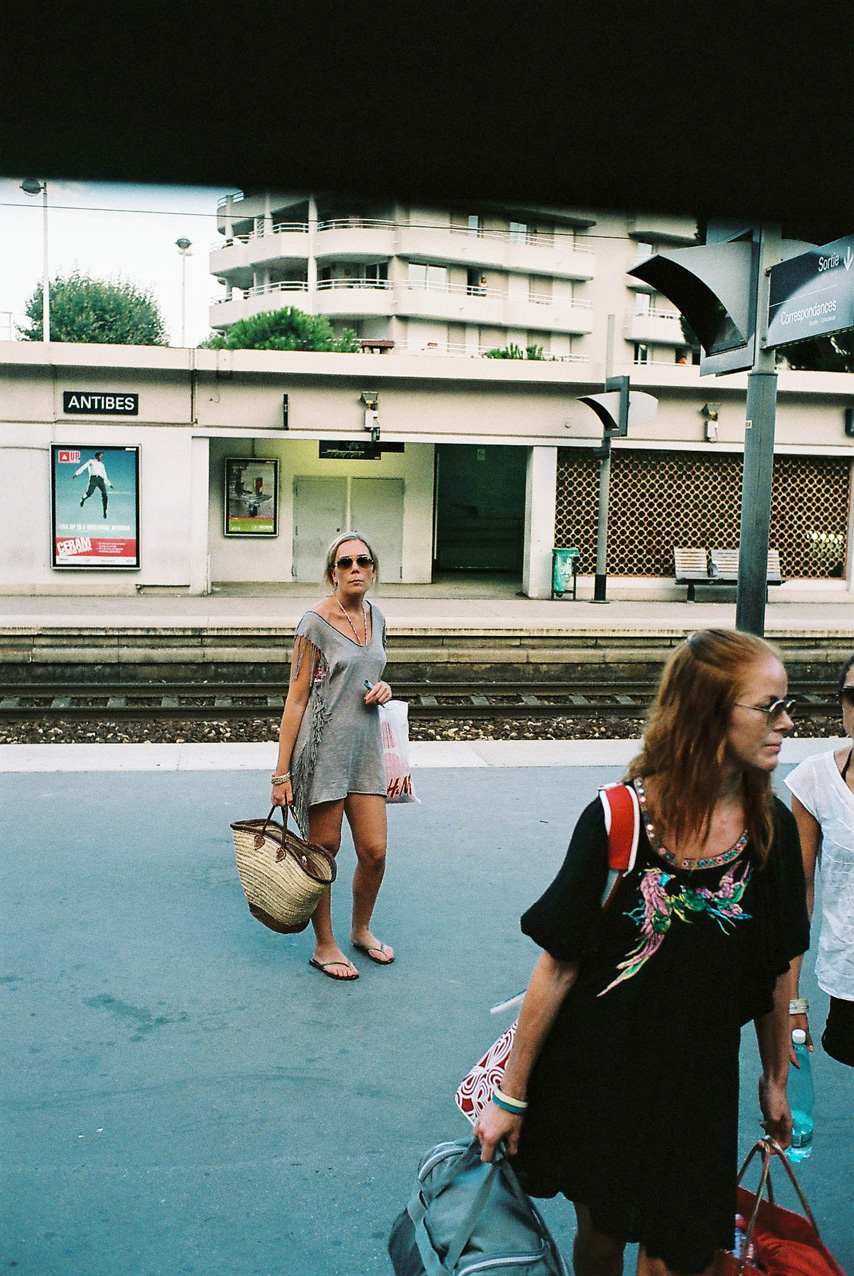
For the first time the French photographer, accustomed to demanding assignments for big name dailies like Le Monde, Libération and Télérama, was granted enough leeway to create a more intimate and reflective work. He took two years to assemble 40 negatives in 18 European Union countries. 'The objective is not just to avoid stereotypes, but to break them altogether,' he explains. While some prejudices and peculiarities are still inevitable, they mix to give an impression of uniformity and commonality, best captured by the image of the typical pedestrian in jeans and trainers. Here, a tourist is in sandals and beachwear on the station platform at Antibes, a resort town in southeastern France. With her H&M bag and sunglasses, is she French, Italian or Hungarian? It's anyone's guess (Image: ©Pascal Bastien)
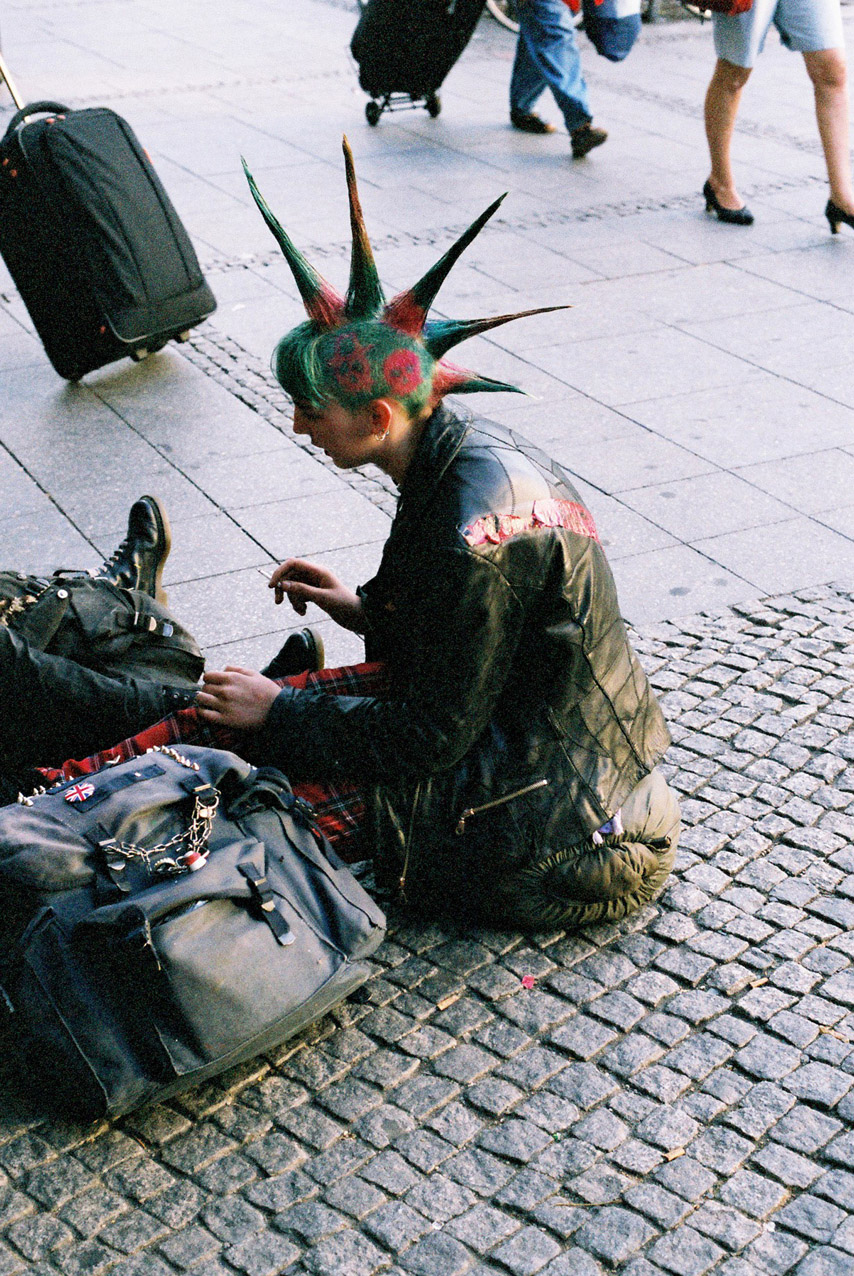
A young Berliner at the Bahnhof Zoologischer Garten station in the centre of the German capital. Known to be a bastion of counterculture, this photograph is quite close to the stereotypical conception of Berlin. It was also the setting of The Children of Zoo Station ('Wir Kinder vom Bahnhof Zoo'), a 1979 biography by former heroin addict Christiane Felscherinow. The story portrays her life in an environment of drugs and prostitution in the title area. In 1981 it was later adapted to film by Uli Edel (Image: ©Pascal Bastien)
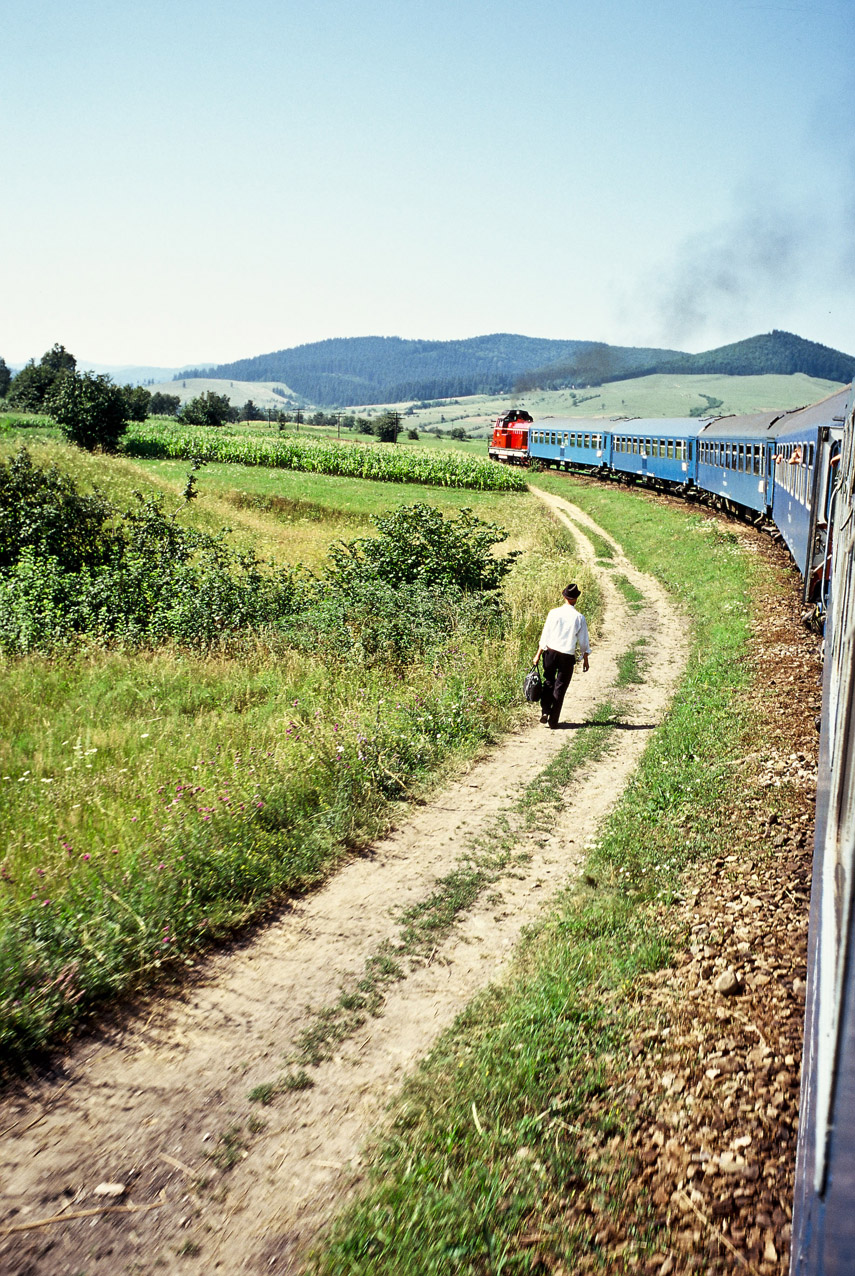
A change of scenery over in Moldavia, which Pascal Bastien describes as having 'a very European landscape', though it lies on the margins of the European Union. 'It makes me think of the Vosges (a mountain range of France), and not because of its sophisticated road system' (Image: ©Pascal Bastien)
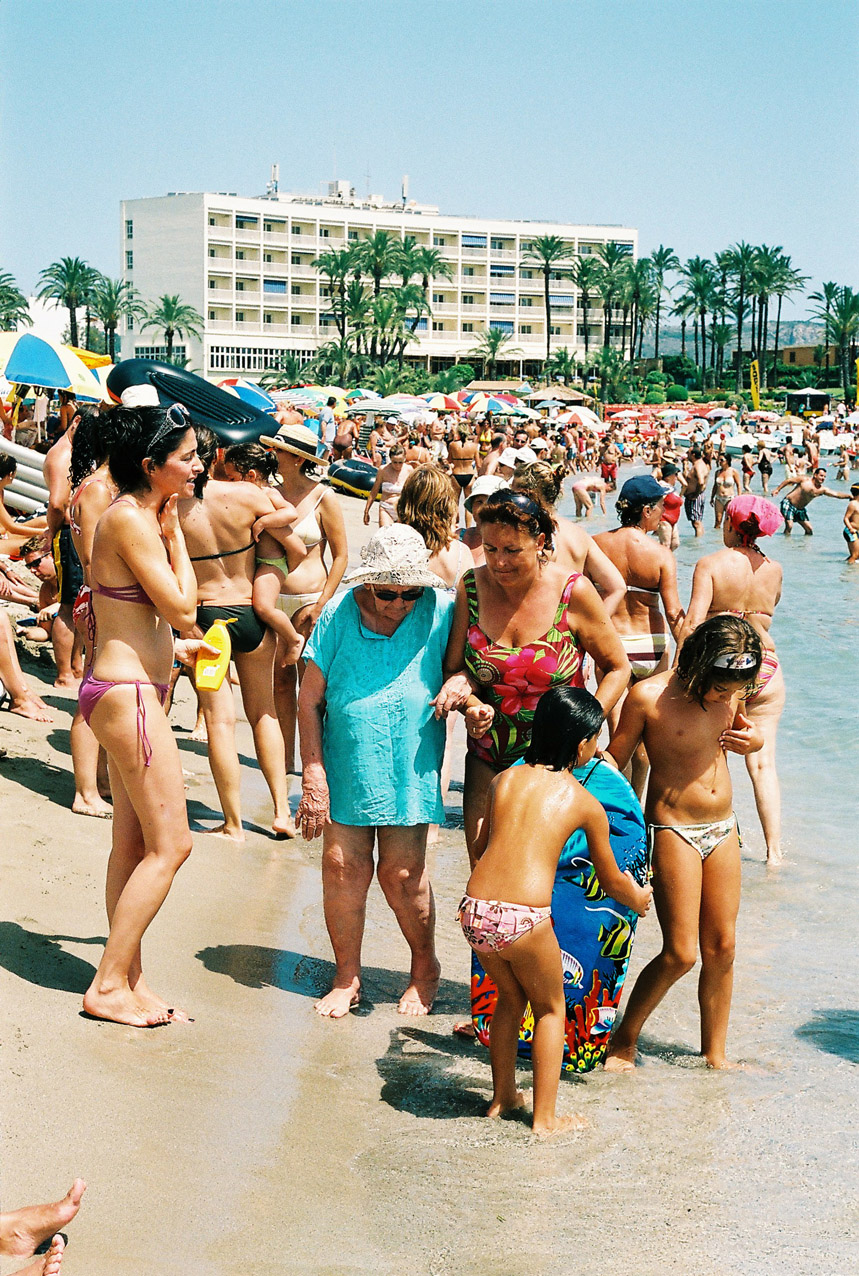
Javea, a beach zone across from the Balearic Islands in the south of Valencia, Spain: at first glance this photograph seems full of clichés in its depiction of the mass tourism on the Spanish coast. Yet it is far from the paradise retreat promoted by travel agencies which fill entire planes full of English and Dutch tourists (Image: ©Pascal Bastien)
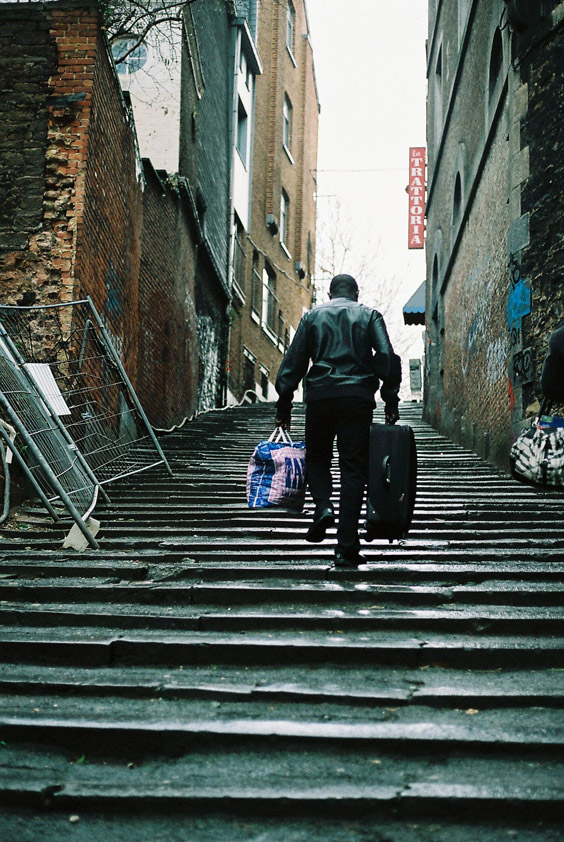
A man climbs a narrow shadowed street. He carries a bag from Tati, a discount department store, the biggest of which is in Paris’ Barbes neighborhood. At the top is a trattoria, a typical Italian restaurant - though this is Belgium (Image: ©Pascal Bastien)
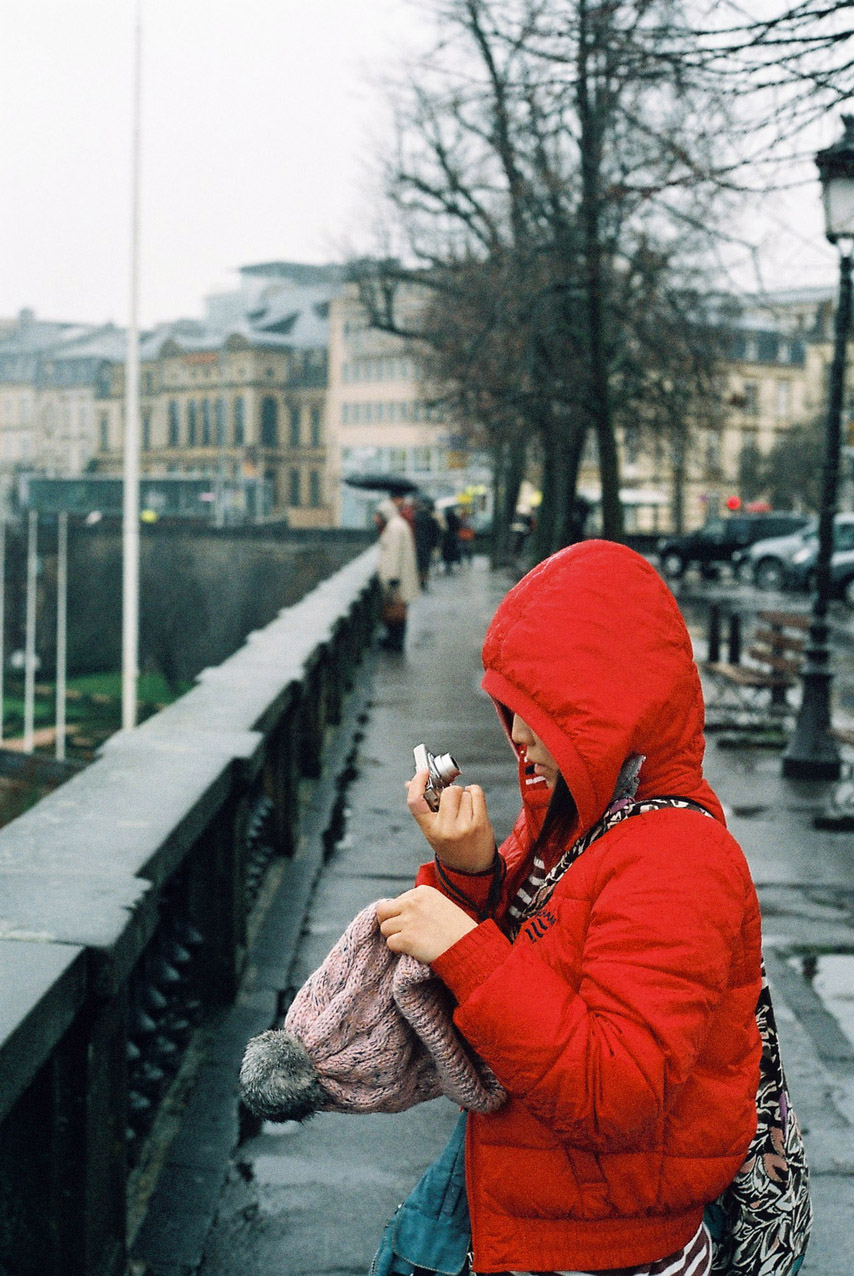
A Japanese tourist inspects the lens of her camera, 'surely to see if it is wet,' jokes Bastien. 'Who’s got the silly hat now?' A visitor that will probably pass through all the European capitals (Image: ©Pascal Bastien)
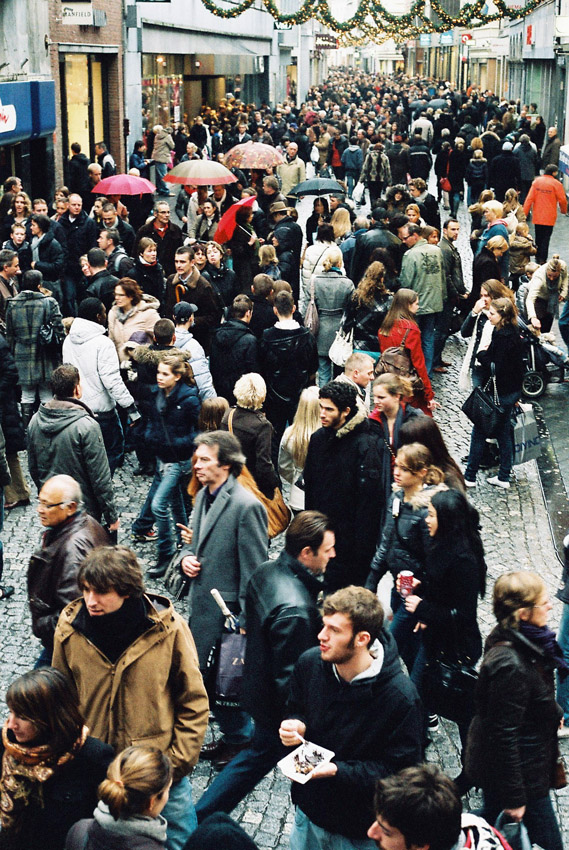
Maastricht is just 30 kilometers from the Belgian and German borders. 'When I was there twelve years ago it was just a small city in an insignificant province. Now it’s a hot spot. You can find all the large international brands there,' says Bastien. Today, Belgians, Germans and the Dutch 'share the limited street space to spend their Christmas money.' The Europe of free trade (Image: ©Pascal Bastien)
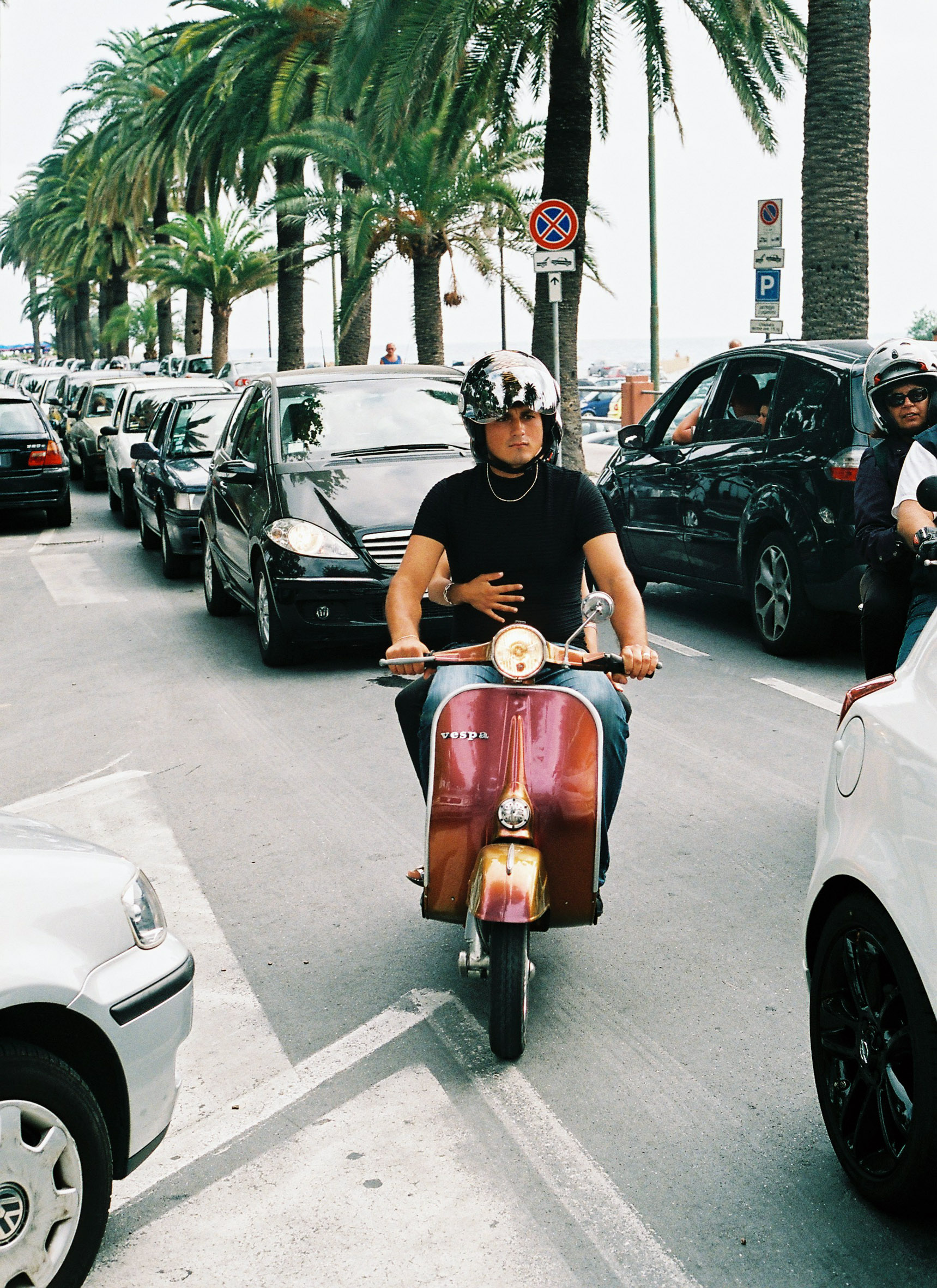
In this small city neighbouring France and Monaco, an Italian on his vespa. It's a caricature for sure, however, caricatures have a basis in reality. 'Stopping for the crosswalk everywhere across Europe, the young and not so young, wear the same jeans and trainers. So it may be a bit of a caricature, but it happens routinely,' affirms Bastien (Image: ©Pascal Bastien)
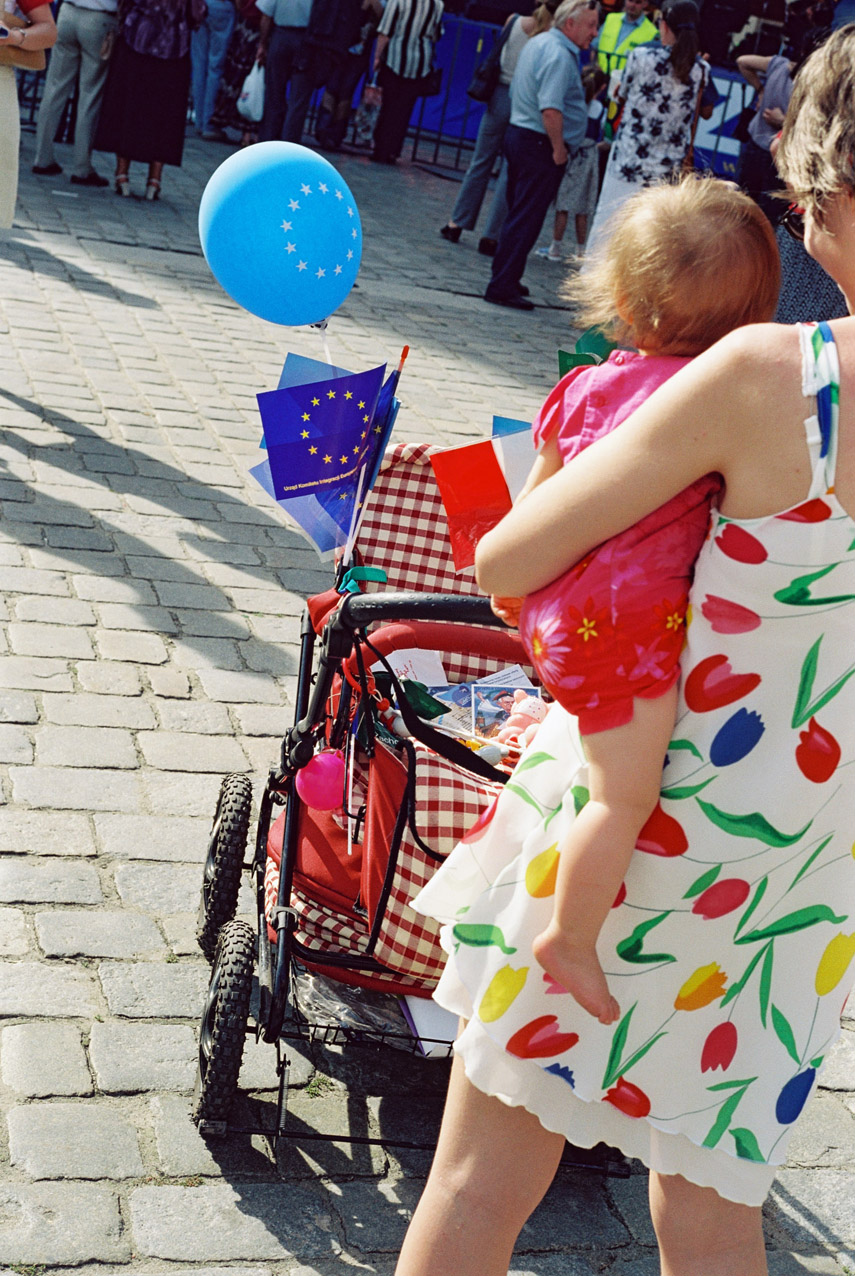
In June 2003 the Poles approved a referendum for membership in the European Union with a resounding 77.5%. A European flag, which normally can only be seen atop EU government buildings. 'Of the 40 photographs, it’s the only one showing the European flag in a social setting,' says Bastien (Image: ©Pascal Bastien)
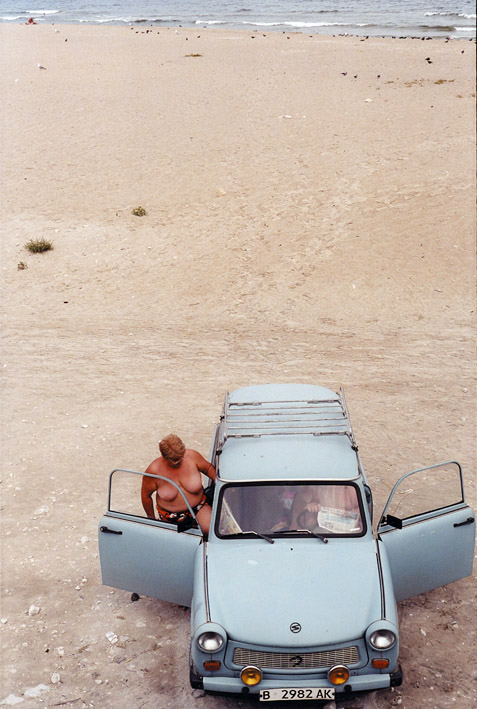
The Black Sea city in Bulgaria is frequented for its beaches. 'In eastern Europe, nudism is much more common than in the west,' says the photographer. Thanks to the cafebabel.com team in Strasbourg - read their blog here (Image: ©Pascal Bastien)
Translated from Pascal Bastien : les Européens, touchants de banalité



